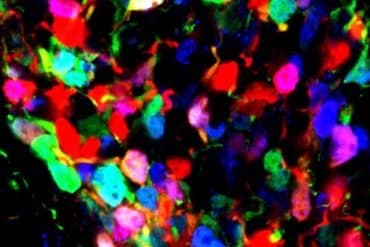Summary: New research shows that prenatal exposure to cannabis can negatively impact children’s thinking and behavioral skills, including impulse control, attention, and aggression, which are key for academic and social success. The study observed preschool-aged children with prenatal cannabis exposure and found they showed poorer control over impulses and emotions.
These findings align with earlier research and come as cannabis potency has increased over the years, underscoring concerns about use during pregnancy. Experts recommend pregnant women avoid cannabis and consult healthcare providers for safer alternatives to manage pregnancy symptoms. Major pediatric and obstetric organizations advise against cannabis use during pregnancy due to potential health risks to mother and child.
Key Facts:
- Prenatal cannabis exposure affects impulse control, attention, and aggression.
- Increased cannabis potency today may heighten risks compared to past decades.
- Experts recommend safer alternatives for managing pregnancy-related symptoms.
Source: Nationwide Children’s Hospital
As cannabis is legalized and is more accessible in various forms across the country, there is increasing concern among health care providers about potential impact on children.
Researchers at Nationwide Children’s Hospital have new findings to add to the existing evidence that cannabis exposure before birth can negatively impact children.

In a study published today in JAMA Pediatrics, researchers found prenatal cannabis exposure was associated in early childhood with poorer thinking skills and behaviors such as impulse control, paying attention, planning ability, and more aggressive behavior, all of which play a vital role in how children perform in school and interact with others.
“Although cannabis is a natural product, there are still many risks to using it during pregnancy,” said Sarah Keim, PhD, principal investigator in the Center for Biobehavioral Health at Nationwide Children’s, and lead author of the study.
“Some women may turn to cannabis to help deal with some common issues of pregnancy including nausea, sleep problems and stress. This is not recommended. Consulting with a health care provider to find safer options to help with these issues during pregnancy is important.”
Researchers used multiple assessments, including asking parents about their child’s typical behaviors and measurement of skills related to impulse control, paying attention, solving problems, and managing emotions in preschool-aged children.
Results showed children exposed to cannabis had more difficulty controlling their impulses, paying attention and planning, and showed more aggressive behavior when researchers observed their behavior in a play laboratory environment.
“Our findings were not surprising – they actually confirm and expand on longstanding evidence from previous research,” said Dr. Keim.
“With our more contemporary and diverse sample of women and children, and with much higher potency of cannabis now than in past decades, this study validates previous research and supports existing clinical recommendations for patients.”
The American Academy of Pediatrics and the American College of Obstetricians and Gynecologists both caution against cannabis use during pregnancy because of possible health risks to mothers and children.
About this CUD and neurodevelopment research news
Author: Tony Morris
Source: Nationwide Children’s Hospital
Contact: Tony Morris – Nationwide Children’s Hospital
Image: The image is credited to Neuroscience News
Original Research: Closed access.
“Prenatal Cannabis Exposure and Executive Function and Aggressive Behavior at Age 5 Years” by Sarah Keim et al. JAMA Pediatrics
Abstract
Prenatal Cannabis Exposure and Executive Function and Aggressive Behavior at Age 5 Years
Importance
Cannabis use during pregnancy is increasingly common in the US and may affect the development and behavior of preschool-aged children.
Objective
To prospectively investigate the association of prenatal cannabis exposure with executive function and aggressive behavior at age 5 years.
Design, Setting, Participants
This cohort study was conducted from 2016 through 2020. Data analysis was conducted from 2022 through 2024. Patients aged 16 through 50 years who were able to communicate in English and intended to deliver at the Ohio State University Wexner Medical Center were enrolled in a pregnancy research repository. Participants (n = 355) who gave consent for future contact and whose child(ren) was presumed to be alive were invited to participate again at child age 5 years (children born May 25, 2010, through February 7, 2016) and 250 children participated (70%).
Exposure
Cannabis exposure was measured prospectively by urine toxicology, maternal self-report, and obstetric record abstraction.
Main Outcomes and Measures
Executive function and aggressive behavior, measured via multimodal assessment by staff masked to exposure status. Outcomes were chosen a priori.
Results
Of 250 children, 80 were exposed to cannabis (32%). Use of tobacco, other drugs, and alcohol during pregnancy was common (22% to 39% each). Most families were living in poverty.
There were 155 children who were Black/African American, non-Hispanic (62%); 11 were Hispanic (4%); 34 indicated more than one race or another race, non-Hispanic (14%); and 50 were White, non-Hispanic (20%).
Age-corrected standard scores for children’s attention and inhibitory control (National Institutes of Health Toolbox) were about 0.4 SDs lower for those exposed to cannabis compared with unexposed (β = −6.1 points; 95% CI, −10.8 to −1.4), following propensity score weighting and adjustment for confounders.
Exposed children also exhibited poorer task-based planning ability and more observed aggression. Caregiver ratings of executive function and behavior and laboratory assessments of other aspects of executive functioning showed no differences by exposure status.
Conclusions and Relevance
Results from this contemporary US cohort where prenatal cannabis exposure was common and indicated that exposed children exhibited some differences in aspects of executive function and behavior relevant to long-term academic success and adaptive functioning. These results may be considered in refining clinical recommendations regarding cannabis use during pregnancy.







